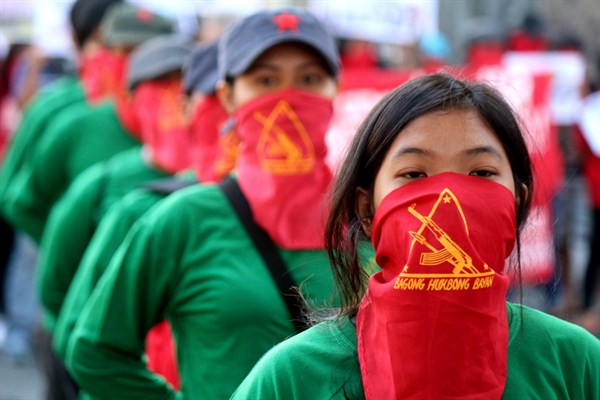In mid-February, Philippine President Rodrigo Duterte said he would pay government forces a bounty of nearly $500 for each communist rebel they killed, according to The Associated Press, suggesting this would be a cost-effective way to combat a decades-long insurgency. His remarks, which were widely denounced as inflammatory, came amid an uptick in violence between government forces and the rebels and increasingly bleak prospects for peace talks, which broke down last year. In an email interview, Renato DeCastro, a professor of international studies at De La Salle University in Manila, explains why the peace process has stalled, what progress has been made and what Duterte's next steps are likely to be.
WPR: What led to the latest breakdown in talks between the Duterte government and communist rebels?
Renato DeCastro: The breakdown in the latest attempt at peace negotiations between the government and the National Democratic Front of the Philippines, or NDFP, a coalition of leftist groups that includes the New People's Army, the armed wing of the Communist Party of the Philippines, was caused by the two sides’ differences over the terms of a potential cease-fire and the inclusion of the rebels in government posts. Duterte's government wanted an immediate termination of hostilities, and for the New People’s Army, or NPA, to stop collecting “revolutionary taxes” from people and businesses in the territory where it exerts influence. The NDFP did not actually object to these conditions but wanted the signing of a truce to be linked to progress on the peace talks, such as the release of political prisoners, while the government wanted the cease-fire to be unconditional.

